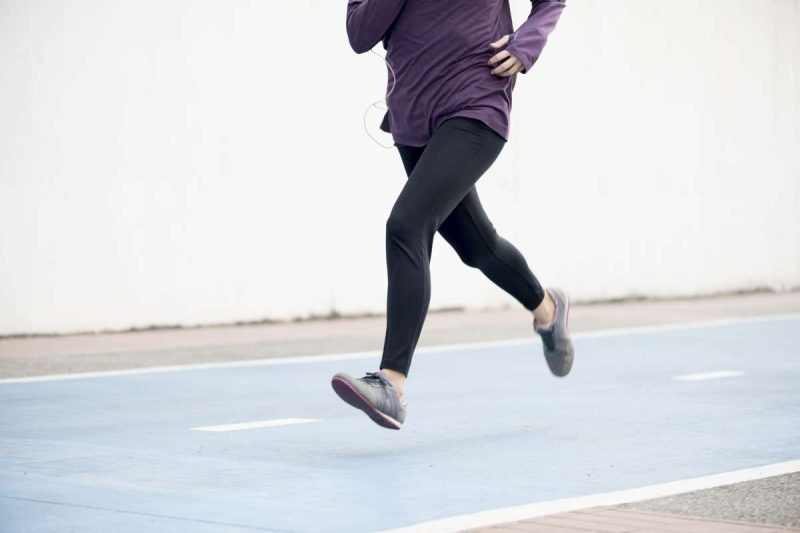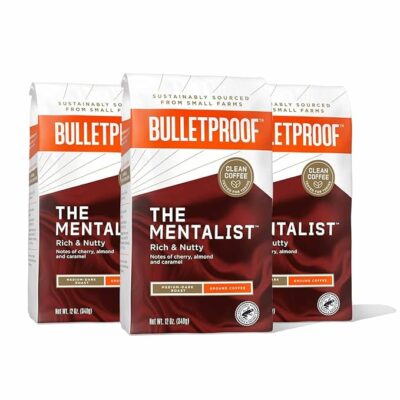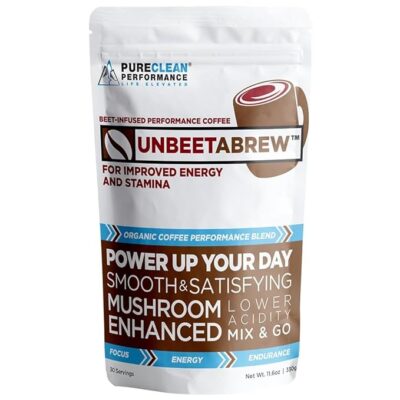Last updated on January 15th, 2024 at 05:56 pm
What is the best pre-workout coffee selection before your exercise?
When it comes to choosing a coffee before your workout, it’s important to consider the caffeine content and the potential effects on your body. Here are a few options to consider for pre-workout coffee selection:

Table of Contents
Regular black coffee
This is a popular choice for many athletes and fitness enthusiasts. Black coffee is a natural stimulant and can help improve focus, alertness, and overall performance.
It’s a good option if you’re looking for a caffeine boost before your workout. It offers several benefits as a pre-workout drink. Here are some pros some potential drawbacks to consider:
PRO
- Enhanced alertness and focus: Caffeine, a natural stimulant in coffee, can help improve cognitive functions. Consuming black coffee before a workout can increase alertness, focus, and mental clarity, allowing you to perform better during your training session.
- Increased energy levels: Caffeine stimulates the central nervous system, leading to increased adrenaline production and a subsequent boost in energy levels. This can help combat fatigue and improve endurance during workouts, allowing you to push through intense training sessions.
- Fat-burning properties: Black coffee has been shown to enhance fat oxidation and increase metabolic rate. The caffeine in coffee stimulates the release of stored fat, making it available as a source of fuel during exercise. This can be beneficial for individuals aiming to lose weight or improve body composition.
- Performance enhancement: Caffeine can enhance physical performance. It has been shown to improve strength, power, and endurance, making it beneficial for activities that require high-intensity efforts or prolonged endurance.
CON
- Individual tolerance: Caffeine can affect a person’s body and vary significantly from one to the other. Some individuals may be more sensitive to its stimulating effects and may experience jitters, nervousness, or an increased heart rate. It’s crucial to understand your own tolerance and adjust your coffee intake accordingly.
- Dehydration: Caffeine is a mild diuretic, which can increase urine production and potentially contribute to dehydration. It’s important to balance coffee consumption with adequate hydration by drinking additional water before, during, and after your workout.
- Sleep disruption: Consuming black coffee too close to bedtime or in excessive amounts can interfere with sleep quality. Rest and recovery are essential components of a successful training program, so it’s important to monitor your caffeine intake to avoid disrupting your sleep patterns.
- Gastrointestinal issues: The high acidity of black coffee can cause gastrointestinal discomfort, including acid reflux, heartburn, or an upset stomach for some people. If you experience these issues, you may want to explore other coffee options, such as cold brew or low-acid coffee, to reduce the impact of these effects.
Overall, regular black coffee can be a beneficial pre-workout drink, providing increased alertness, energy, fat-burning, and performance enhancement.
It’s important to listen to your body, experiment with different options, and find the right balance that works best for you.
Espresso
If you prefer a concentrated dose of caffeine, espresso can be a good choice.
It contains a higher concentration of caffeine compared to regular coffee, so it can provide a quick energy boost.
However, be mindful of your tolerance to caffeine, as espresso shots can be quite potent.
Espresso is a concentrated form of coffee that offers a distinct set of advantages and disadvantages when used as a pre-workout drink. Here are the pros and some potential downsides to consider:
PRO
- High caffeine content: Espresso contains a higher concentration of caffeine compared to regular coffee. This means that a single shot of espresso can provide a quick and potent energy boost, ideal for anyone seeking an immediate pick-me-up before their workout.
- Quick absorption: Due to its concentrated nature, espresso is quickly absorbed by the body. This rapid absorption allows caffeine to reach your bloodstream faster, leading to a quicker onset of its stimulating effects. As a result, espresso can be beneficial for people who need an instant energy kick before their workout.
- Enhanced focus and alertness: Like regular black coffee, because of the caffeine, espresso can improve mental focus and alertness, helping you maintain concentration during your workout. The higher caffeine content in espresso can amplify these cognitive benefits, making it an excellent choice for activities that require intense mental focus, such as weightlifting or high-intensity interval training.
CON
- Caffeine sensitivity: As always, caffeine again, espresso shots pack a considerable amount of caffeine in a small volume. If you are sensitive to caffeine or have a low tolerance, consuming espresso may lead to jitters, nervousness, increased heart rate, or even anxiety. As for any caffeinated drinks, it is important to understand your own tolerance and adjust your espresso intake accordingly.
- Digestive issues: The concentrated caffeine nature of espresso can sometimes cause gastrointestinal discomfort, especially if consumed on an empty stomach. Some individuals may experience acid reflux, heartburn, or an upset stomach due to the higher concentration of caffeine. It’s wise to consume espresso alongside a small snack or after a meal to minimize the risk of digestive issues.
- Dehydration risk: Like regular coffee, espresso also has diuretic properties. It’s important to balance your espresso intake with adequate hydration by drinking additional water before, during, and after your workout. It is very common in Italy, where espresso was invented, that a glass of water is served together with a shot of espresso.
- Dependency and tolerance: Regularly relying on espresso for pre-workout energy may lead to caffeine dependency and the need for progressively higher doses to achieve the same effects. Additionally, habitual consumption of high doses of caffeine can result in increased tolerance, reducing the stimulatory benefits over time.
Espresso can provide a concentrated dose of caffeine, offering a quick energy boost, enhanced focus, and alertness. However, it’s important to be mindful of your own caffeine tolerance, listen to your body, and find the right balance that works best for your pre-workout routine.
Cold brew coffee
Cold brew coffee is made by steeping coffee grounds in cold water over an extended period, usually overnight. This method tends to produce a smoother, less acidic coffee.
Cold brew coffee can provide a steady release of caffeine and may be less likely to cause jitters or digestive discomfort.
Cold brew coffee offers several benefits as a pre-workout coffee option. Here are the pros and a few potential cons to consider:
PRO
- Reduced acidity: Cold brew coffee is made by steeping coffee grounds in cold water over an extended period, typically overnight. This slow extraction process results in a coffee that is less acidic compared to traditional hot brewed coffee. As a result, individuals with sensitive stomachs or those prone to acid reflux may find cold brew coffee to be gentler on their digestive system.
- Smooth flavor: The extended steeping time of cold brew coffee extracts flavor compounds differently, resulting in a smoother taste. This can be particularly appealing to individuals who prefer a less bitter or less intense coffee flavor. The mellow flavor profile of cold brew coffee makes it an enjoyable pre-workout option for those who may find regular black coffee or espresso too strong.
- Steady release of caffeine: Cold brew coffee provides a steady release of caffeine due to its brewing method. The longer steeping time allows for a gradual extraction of caffeine from the coffee grounds, resulting in a smoother and more prolonged caffeine release into the body. This can provide a sustained energy boost during your workout without the sudden spike or crash often associated with other forms of coffee.
- Potential reduction in jitters and digestive discomfort: Cold brew coffee’s smoother flavor and lower acidity may be less likely to cause jitters or digestive discomfort compared to other forms of coffee. This can be beneficial for individuals who are more sensitive to the effects of caffeine or experience gastrointestinal issues with other coffee options.
CON
- Lower caffeine concentration: Cold brew coffee typically has a lower caffeine concentration compared to traditional hot brewed coffee or espresso. While this can be advantageous for those who prefer a milder caffeine boost, people who require a higher dose of caffeine for optimal performance may find cold brew coffee less effective in providing a substantial energy kick.
- Longer preparation time: Cold brew coffee requires an extended brewing time, usually ranging from several hours to overnight. If you’re looking for a quick pre-workout option, cold brew coffee may not be the most convenient choice, as it requires planning and preparation in advance.
- Cost considerations: Cold brew coffee is often associated with higher costs compared to regular coffee or espresso. The brewing process requires a larger quantity of coffee grounds, resulting in higher coffee-to-water ratios. This can make cold brew coffee a more expensive option, especially if purchased from cafes or coffee shops.
Cold brew coffee offers a less acidic, smooth-flavored pre-workout option with a steady release of caffeine. It may be a suitable choice for individuals with sensitive stomachs or those who prefer a milder coffee taste.
However, its lower caffeine concentration, longer preparation time, and potentially higher cost should be considered.It’s important to assess your caffeine needs, consider convenience, and budget when deciding if cold brew coffee is the right pre-workout option for you.
Bulletproof coffee is made by blending coffee with grass-fed butter and MCT oil. It provides a sustained release of energy due to the combination of caffeine, fats, and medium-chain triglycerides (MCTs).
However, this option may not be suitable for everyone, especially those following a specific dietary plan.
Here are the pros and a few potential cons to consider:
PRO
- Sustained energy release: The caffeine in coffee offers an immediate energy boost, while the fats from butter and MCT oil provide a longer-lasting source of fuel. This sustained energy release can be beneficial for endurance-based workouts or activities that require prolonged effort.
- Enhanced mental focus and cognition: The presence of caffeine and MCT oil in bulletproof coffee can enhance mental focus and cognitive function. MCTs are easily converted into ketones, which serve as an alternative energy source for the brain. This can promote mental clarity, improve concentration, and heighten alertness during your workout.
- Appetite suppression: The combination of fats and caffeine in bulletproof coffee can help suppress appetite. This can be advantageous for individuals who prefer to exercise in a fasted state or those looking to control their calorie intake. The fat and MCTs reduce hunger cravings, so bulletproof coffee can help prolong the duration of your workout without feeling distracted by hunger pangs.
CON
- Dietary considerations: Bulletproof coffee’s inclusion of butter and MCT oil may not align with specific dietary plans or restrictions. For example, individuals following a vegan, lactose-free, or dairy-free diet may need to seek alternative options. It’s important to ensure that bulletproof coffee fits within your dietary guidelines and preferences.
- Caloric content: Bulletproof coffee can be calorie-dense due to the added fats from butter and MCT oil. While these fats provide sustained energy, they also contribute to the overall calorie count of the beverage. If you are watching your calorie intake or aiming for weight loss, it’s essential to account for the additional calories from bulletproof coffee in your overall diet plan.
- Taste and texture: The addition of butter and MCT oil can alter the taste and texture of coffee, resulting in a creamy and rich flavor. While some individuals enjoy this flavor profile, others may find it unappealing or too heavy. It’s a matter of personal preference and taste.
- Digestive concerns: The high-fat content in bulletproof coffee can cause digestive issues for some individuals. This includes potential stomach discomfort, diarrhea, or an upset stomach. If you have a sensitive digestive system, it might be wise to start with smaller amounts of butter and MCT oil to gauge your tolerance.
Bulletproof coffee offers a unique combination of sustained energy, enhanced mental focus, and appetite suppression.
However, it may not be suitable for everyone due to dietary considerations, its caloric content, potential taste preferences, and digestive concerns.
It’s important to assess your specific dietary needs, taste preferences, and potential digestive sensitivities when considering bulletproof coffee as a pre-workout option.
I stumbled upon this unique product by accident while I was doing research for this article.
UNBEETABREW is a combination of premium, superfood ingredients for unparalleled keto coffee health, high performance, and endurance boost. Each serving has 75 mg of caffeine from specially processed coffee beans (the caffeine content is equivalent to a regular cup of coffee), 5 grams of beet juice, and 1.5 grams of clinically proven mushrooms and L-theanine.
UNBEETBREW improves stamina and circulatory support. Cordyceps and five other functional mushrooms boost the body’s immune system. Bioenergy ribose elevates muscle power and energy, and AlphaWave® L-theanine improves mental capacity in focus and promotes fat burn while exercising.
Here are the pros and a few potential cons to consider:
PRO
- Stimulate endurance: The red beet juice not only helps lower blood pressure but also improves exercise stamina.
- Support healthy blood pressure: The beet juice has the effect of lowering blood pressure with long-term regular consumption.
- Improve mental concentration: The organic Arabica beans contain a high level of polyphenols that promote a person’s focus, and at the same time taste minimal bitterness and acidity.
- Boost a person’s immune system: 1.5 grams of functional mushrooms per serving provides your body with excellent recovery and immune support.
CON
- New product: Physician-formulated, but not widely known yet.
- The sweet taste may not fit everyone: The red beet juice is mixed with other ingredients, and it tastes sweet which may not be appreciated by everyone.
UNBEETABREW is a unique superfood as an alternative pre-workout drink.
Summary
In conclusion, when it comes to choosing the right coffee to fuel your workout, it ultimately depends on your preferences, tolerance to caffeine, and desired outcomes. Each option offers unique qualities that can enhance your exercise routine.
Regular black coffee is a reliable choice, providing a moderate caffeine boost and a simple, bold flavor. It can increase alertness and improve endurance during your workout without any additional additives or flavors.
Espresso, on the other hand, offers a concentrated dose of caffeine in a small serving. It delivers a quick energy spike, making it ideal for short, intense workouts or as a pre-workout shot.
The robust flavor and aroma of espresso can also provide a sensory boost to get you in the right mindset for exercise.
If you prefer a smoother, less acidic taste, cold brew coffee might be your go-to option. Its slow steeping process produces a milder flavor while retaining a sufficient caffeine kick.
Cold brew can be refreshing, hydrating, and easier on the stomach, making it an excellent choice for longer workouts or hot weather.
For those seeking an added boost of healthy fats and sustained energy, bulletproof coffee could be a worthy contender.
By blending coffee with butter and MCT oil, this high-fat beverage provides a slower release of caffeine and can promote mental clarity and focus during your workout.
As for the UNBEETABREW, you should give it a try and see what kind of benefit it would bring you for your workout.
Ultimately, the best coffee for your pre-workout routine depends on personal preference, caffeine tolerance, and the intensity and duration of your exercise.
Remember that caffeine affects individuals differently, so it’s essential to listen to your body and find what works best for you. It’s also important to stay hydrated and not rely solely on coffee for your pre-workout energy.
Experiment with different options to find the one that enhances your performance and enjoyment, helping you achieve your fitness goals. Now go forth, sip wisely, and conquer your workouts!
Keep In Touch If You Like My Articles.
As much as I like to share my knowledge and skills with you, I love to hear from you. If you have any suggestions or comments, please click here. Also don’t forget to subscribe to our quarterly newsletters if you like my blogs and like to keep in touch.
Of course, read more blog posts I post now and then, such as “Brewing Harmony“.

